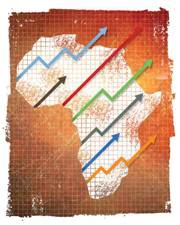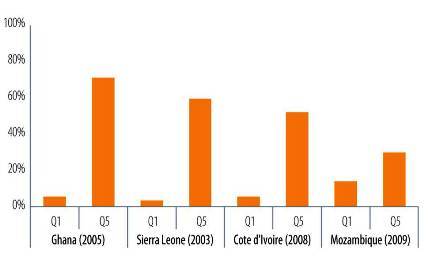
Data for 2010-11 show that fuel price subsidies consumed, on average, 1.4 percent of GDP in public resources: The fiscal cost in oil exporters was almost two-and-a-half times that in oil importers. In the face of high (and rising) world fuel prices, a number of countries have raised domestic prices to stem fiscal costs.
For example, Ghana raised fuel prices by about 30 percent in January 2011. The Nigerian government removed the subsidy on gasoline this January, although a portion of the subsidy was subsequently reinstated. With oil prices likely to remain elevated, fuel subsidies will continue to weigh on government budgets in Africa.
But who benefits from fuel price subsidies?
Expenditure data for seven African countries show that the distribution of these subsidies is disproportionately concentrated in the hands of the rich. Richer households spend a larger amount on fuel products, and, consequently, benefit more than poorer households from any universal subsidy on these products. On average the richest 20% receive over six times more in subsidy benefits than the poorest 20%.
Potential distribution of gasoline subsidy to households by income group, % of gasoline subsidy
Source: Africa's Pulse, Vol.5, World Bank


Join the Conversation